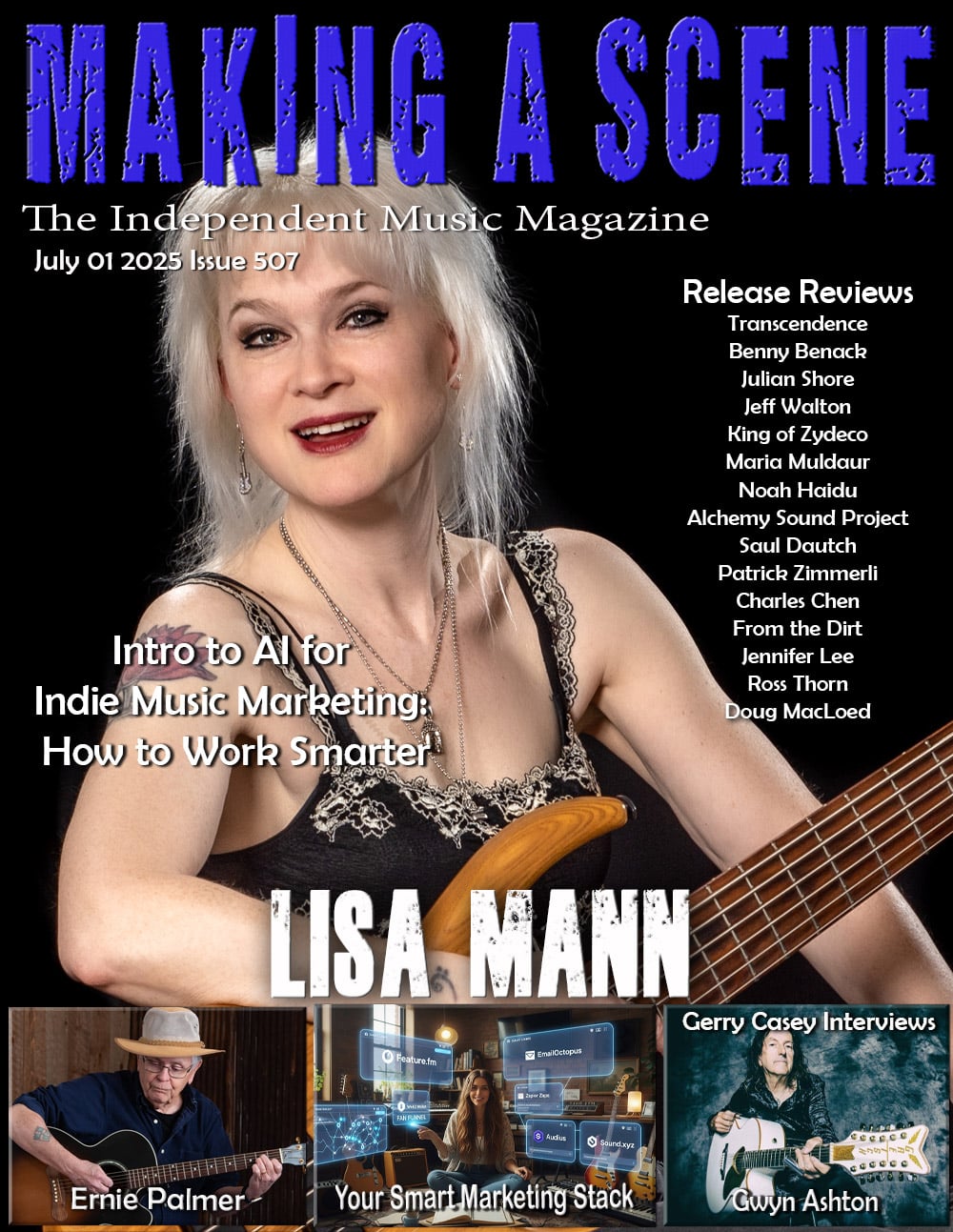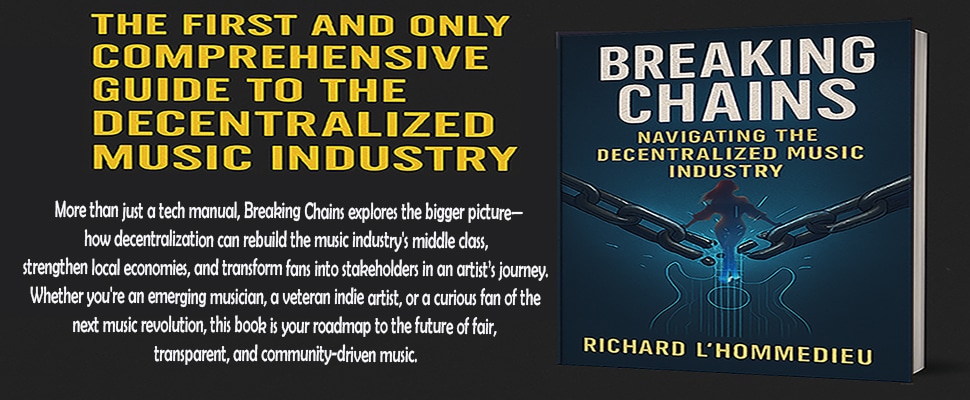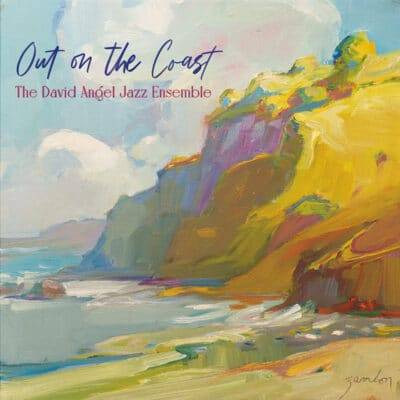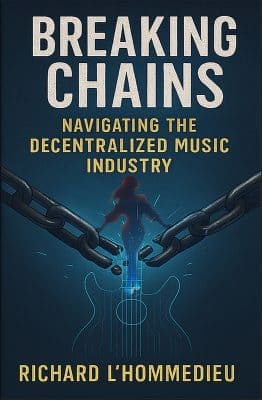The David Angel Jazz Ensemble Out on the Coast
Out on the Coast – 3 CDs
Basset Hound Music
David Angel is likely the best arranger and composer you have never heard of. You are not alone. Even though he is one of the most respected on the West Coast, he is virtually unknown to the public. It certainly threw this writer for a loop to have received his 3-CD set, Out on the Coast, without any knowledge whatsoever of him though there was some recognition of members in his 14-piece ensemble in which he plays tenor sax and conducts. It took tuba and bass trombonist Jim Self, who produced these 22 tracks, recorded in just 4 days, to bring Angel’s music to the public, which has rarely happened over the years., mostly by design as Angel has devoted most of his career to film, television, and education.
Angel is a longtime music veteran and some of his background is rather astounding. Born in 1940, Angel learned to play clarinet, saxophone, and flute, and was playing in Latin bands while still in his teens, He also, rather incredulously played traditional jazz with such old-timers as Kid Ory and Johnny St. Cyr (both members of Louis Armstrong’s Hot Five back in 1925-26). After attending Westlake College of Music and Los Angeles City College, he began marketing himself in Hollywood as a musician, writer and arranger and eventually wrote music for such TV shows as Bonanza, Lassie, The Streets of San Francisco and the comedy programs of Jerry Lewis and Red Skelton as well as that of singer Andy Williams. On the side, he played with Woody Herman and Art Pepper as well as working as a studio arrangement writer, often uncredited. Content to mostly just write music, he shunned the social scene. In 1967 he was asked by the album’s producer to write arrangements for the rock band Love’s album Forever Changes, now considered a rock classic.
From the late 1960s onward, he led regular rehearsals in L.A. for the David Angel Big Band, but mostly for recording sessions as they rarely performed in public. He has continued to maintain a career as a music teacher and lecturer at Los Angeles and Pasadena-based schools, though he also taught for 15 years in Europe, particularly in France and Norway but also in Russia after the fall of the Soviet Union. As Brad Dechter says in a blurb inside the album, “David Angel is quite possibly the best composer you’ve never heard of and most definitely the kindest soul you could ever meet.”
These sessions took place a year ago last January. According to the liner notes, written by album producer Jim Self, “This group is not so much a big band, but a 13-piece jazz chamber ensemble. Every chart has extensive space for jazz solos. I like to describe his stuff as ‘Gil Evans meets J.S. Bach’—let that sink into your mind!…With all 13 instruments playing contrapuntally (much of the time), the music can become intense!” Angel is credited with playing tenor sax as well as conducting but is a soloist just twice – so, it’s either a 13-piece or 14-piece ensemble.
Self’s Gil Evans comparison seems partially accurate, especially in the pieces where trumpeter/flugelhornists Jonathan Dane and Ron Stout solo. Those do evoke the Sketches of Spain and Miles Ahead recordings somewhat. Yet, Evans was concerned more with layers and textures than having instruments play in counterpoint to each other. Angel does both of those and as Self cited, there are classical and symphonic strains in here too. Listen carefully and you may pick up the cool era that preceded bebop, given the West Coast air that wafts through the music. Other elements that he fuses in include, not surprisingly, Latin, given his background there. The writing is lyrical, sometimes dense, colorfully harmonic, and challenging to play.
There’s a concerted notion not to make it sound like a big band, but instead a large ensemble, Many pieces have just one or two soloists, some with three, one with five, and just one with seven. No soloist gets overly aggressive or grandstands; most play in a restrained, expressive and economical way that blends in with the overall feel of the piece. In that sense, the music hearkens back to periods of the ‘20s and ‘30s, long before Gil Evans, or most of the large ensemble work we’ve heard in the past five or six decades. There are 14 originals and eight standards and it’s the standards, given their familiarity, that perhaps give us the most appreciation for Angel’s arranging skills. On composing, which he does with pencil and paper, not the piano, he says, “I have spent my life studying music and my approach changed every so often. Writing for TV/films taught me to write episodically. In a film if someone pulls out a gun, the music changes. The pieces on this CD often reflect those changes. A piece can go on a while and then, with a small transition it enters into another mood completely. Now, I know that there are some aficionados out there who say, ‘that’s not jazz, and you shouldn’t write like that.’ But on the other hand, that’s my way.” These changes come both in the form of tempo and dynamics.
These tunes have been written over the course of six decades including the opening “Out on the Coast 2”, which was originally written for his Saxtet, a band of six saxophonists. This one features a sax trio along with Self on bass trombone and esteemed guitarist John Chiodini as the lone soloist. “Wig” is complex and polyphonic with Latin strains and solos from Tom Peterson (tenor), along with Stout and Dane on flugelhorns. Dane shines in his trumpet solo on the standard “Alone Together.” “L’ilo Vasche,” which means “the island cow” was written about Angel’s time in Paris, Interestingly he admits to identifying himself with Bob Carr’s baritone sax solo, the cow with Scott Whitfield’s trombone and Paris with the rest of the instruments while Chiodini takes another gorgeous solo. Not surprisingly, Gene Cipriano’s alto sax solo on Ellington’s “Prelude to a Kiss” channels Johnny Hodges, who played on Duke’s original. “Ah Rite!” is an extended swinging jam that includes an Angel solo amongst the seven soloists with Whitfield’s plunger trombone solo a special standout. “Wild Strawberries,” a ballad, was written in Switzerland and according to Self has a bit of those famous Debussy colors with Stout on flugelhorn and Phil Feather on alto stepping out. The final piece on Disc 1 is an arrangement of Johnny Mandel’s “Hersey Bar” with a tuba solo for Self, a tenor for Angel, and yet another flugelhorn spot for Dane.
Disc 2 begins with the rather conventional “Between” with turns from Chiodini, Peterson, and Stout before segueing to the familiar “Loverman” with Peterson in bluesy style in his tenor spot. The Angel original, Leaves, is a complex jazz waltz that alternates with bars written in 4: sometimes a waltz, and sometimes not. Strayhorn’s A Flower is a Lovesome Thing follows with Stephanie O’Keefe’s French horn pitted against a growling trumpet. Chiodini has another excellent solo on this one, too, and there’s a nice passage for the two flutes. “Deep 2” has its origins in Ellington with Latin rhythms and might be Stout’s strongest trumpet solo. Angel points to the melodic “Moonlight” as having his characteristic changes in tempo, saying this, “The moonlight is in the woodwinds, and then the double tempo is what you do in moonlight—so it was like nighttime jazz.” Again, Chiodini contributes an excellent, swinging solo, as does trombonist Whitfield. “Out on the Coast 3” also features woodwinds, in this case two flutes with Jim Quam’s trombone and Dane’s trumpet adding the finishing touches. Angel’s unique arrangement of the standard “Autumn in New York” closes with beautiful solos from Stout on flugelhorn and Feather on alto.
Disc 3 opens with” Latka Variations,” named somewhat tongue in cheek after potato pancakes and taken in fun style on the low end by the soloists, Peterson on tenor sax and Jim Self on tuba amidst the lush ensemble theme. Angel admits to a “West Coast” arrangement of Harold Arlen’s “This Time the Dream’s on Me” with contributions from Whitfield, Quam, and Dane. “Love Letter to Pythagoras” is an extended piece in several sections and tempos (that “starts slow, gets fast later” thing) featuring Quam, Feather, and Stout. “Waiting For a Train Part 2” showcases the Latin feel of the rhythm section with Paul Kriebach finally getting a drum solo alongside Stout and Chiodini. “Dark Passage” sets the most brooding mood, accentuated by Susan Quam’s bass and Bob Carr’s baritone. “L.A. Mysterioso” closes, written about his re-entry to the cacophony of L.A. after being in Switzerland. The noise, traffic and overall feeling are reflected in the work of the rhythm section and in Jim Quam’s tenor solo.
Yes, lots of words but after all, there are 3 CDs of extremely well-crafted music here. And, as you peruse the personnel listed below, note that each soloed at least once. Kudos to Jim Self for putting Angel’s talents on display for the world to get to know him. We are all better off for it.
The David Angel Jazz Ensemble: Jonathan Dane, Ron Stout, (tpt/fl-hn); Scott Whitfield, (tb); Jim Self, (tuba/bs-tb); Phil Feather, (a-sax/s-sax/pic/fl/al-fl); Gene “Cip” Cipriano, (a-sax/s-sax/cl); Jim Quam, (t-sax.cl); Tom Peterson, (t-sax/fl/a-fl); David Angel, (t-sax/cond); Bob Carr, (bari-sax/bs-cl); Stephanie O’Keefe, (Fr-hn); John Chiodini, (gtr); Susan Quam, (bs); Paul Kreibach, (dm)
- Jim Hynes
Buy Us a Cup of Coffee!
Join the movement in supporting Making a Scene, the premier independent resource for both emerging musicians and the dedicated fans who champion them.
We showcase this vibrant community that celebrates the raw talent and creative spirit driving the music industry forward. From insightful articles and in-depth interviews to exclusive content and insider tips, Making a Scene empowers artists to thrive and fans to discover their next favorite sound.
Together, let’s amplify the voices of independent musicians and forge unforgettable connections through the power of music
Make a one-time donation
Make a monthly donation
Make a yearly donation
Buy us a cup of Coffee!
Or enter a custom amount
Your contribution is appreciated.
Your contribution is appreciated.
Your contribution is appreciated.
DonateDonate monthlyDonate yearlyYou can donate directly through Paypal!
Subscribe to Our Newsletter
Order the New Book From Making a Scene
Breaking Chains – Navigating the Decentralized Music Industry
Breaking Chains is a groundbreaking guide for independent musicians ready to take control of their careers in the rapidly evolving world of decentralized music. From blockchain-powered royalties to NFTs, DAOs, and smart contracts, this book breaks down complex Web3 concepts into practical strategies that help artists earn more, connect directly with fans, and retain creative freedom. With real-world examples, platform recommendations, and step-by-step guidance, it empowers musicians to bypass traditional gatekeepers and build sustainable careers on their own terms.
More than just a tech manual, Breaking Chains explores the bigger picture—how decentralization can rebuild the music industry’s middle class, strengthen local economies, and transform fans into stakeholders in an artist’s journey. Whether you’re an emerging musician, a veteran indie artist, or a curious fan of the next music revolution, this book is your roadmap to the future of fair, transparent, and community-driven music.
Get your Limited Edition Signed and Numbered (Only 50 copies Available) Free Shipping Included
 |  Spotify | 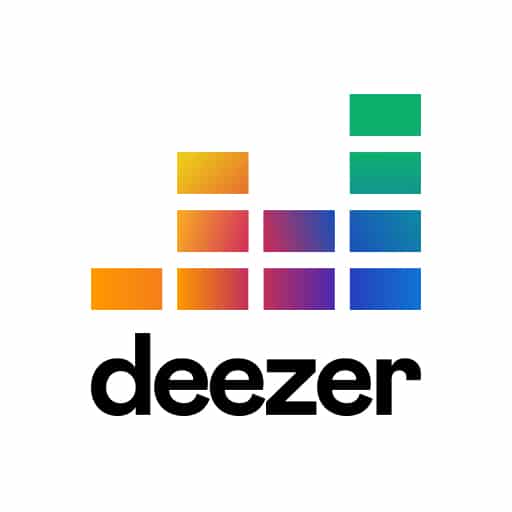 Deezer | Breaker |
 Pocket Cast | 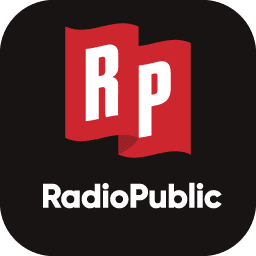 Radio Public | 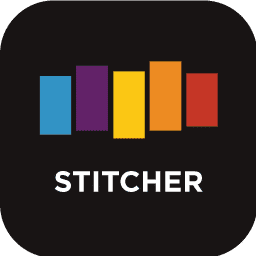 Stitcher |  TuneIn |
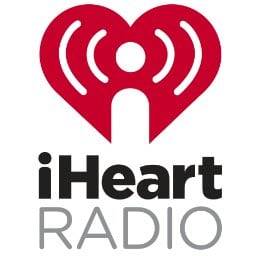 IHeart Radio |  Mixcloud |  PlayerFM |  Amazon |
 Jiosaavn |  Gaana | Vurbl |  Audius |
Reason.Fm | |||
Find our Podcasts on these outlets
Discover more from Making A Scene!
Subscribe to get the latest posts sent to your email.
